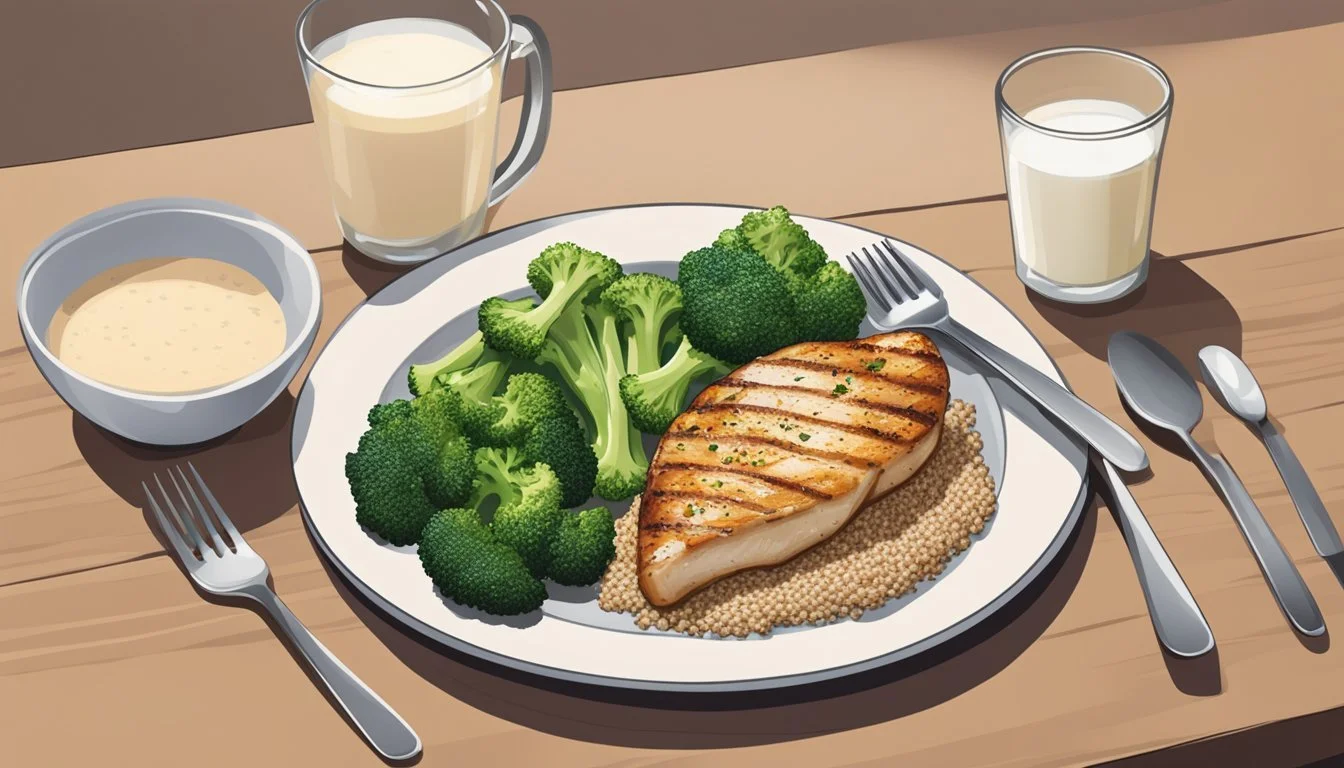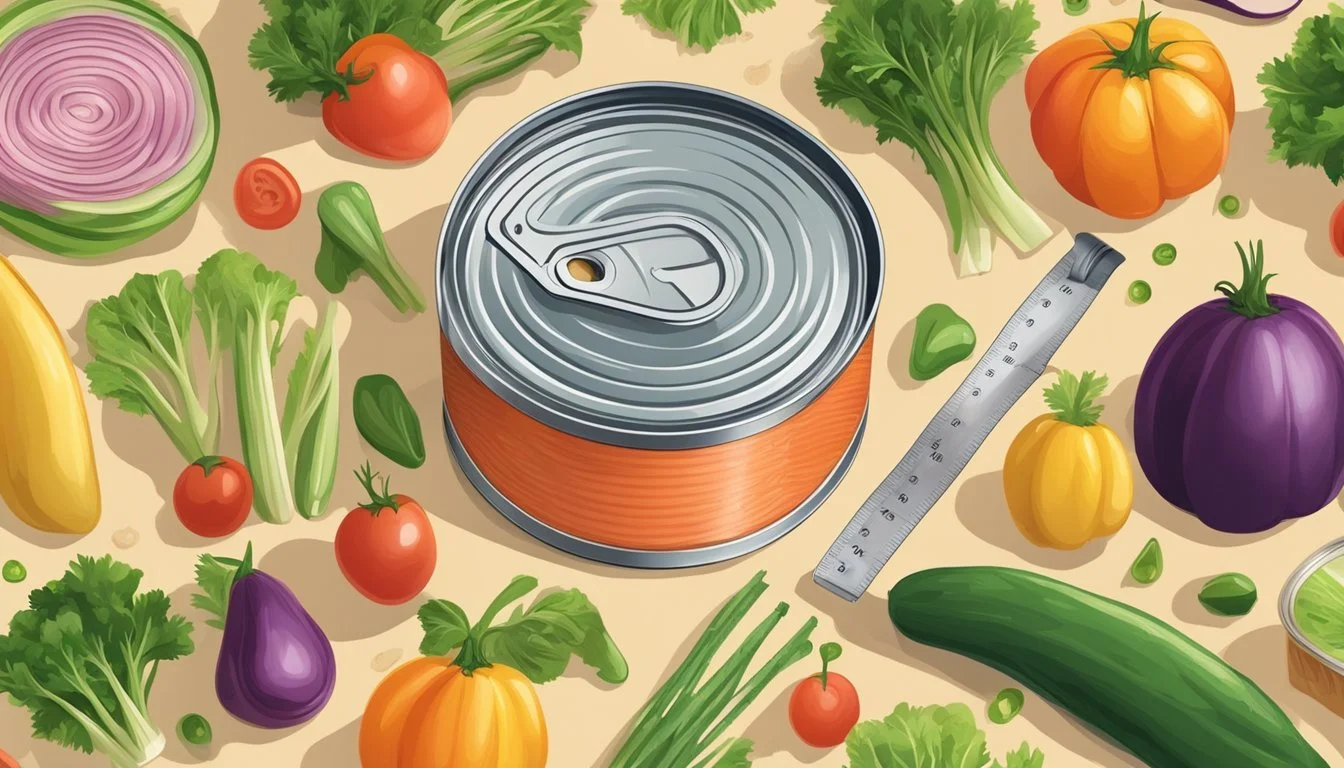25 Low-Calorie, High-Protein Foods for Weight Management
Top 10 Healthy Choices
Eating foods that are high in protein but low in calories is an effective strategy for anyone looking to boost their overall health, maintain or lose weight, and support muscle growth. Protein is an essential nutrient that plays a crucial role in building and repairing tissues, while also helping to keep you feeling full longer, which can be beneficial for weight management.
Incorporating high-protein, low-calorie foods into your meals can provide a nutrient-dense option that supports your body's needs without unnecessary caloric intake. This approach to eating can be particularly useful for those looking to manage their weight, improve muscle mass, or enhance overall physical well-being.
1) Chicken Breast
Chicken breast is a versatile and popular choice for those looking to increase protein intake while keeping calorie counts low.
It is particularly favored by athletes and fitness enthusiasts due to its impressive nutritional profile.
A typical serving of chicken breast (about 3 ounces) contains approximately 27 grams of protein and only 140 calories.
Chicken breast can be prepared in numerous ways, including grilling, baking, and sautéing. It's often included in meal prep for its convenience and ability to pair well with various vegetables and grains.
Chicken breast can accommodate a wide range of flavors, from lemon-pepper seasoning to more elaborate marinades.
In addition to being low in calories, chicken breast is also low in fat. Many recipes ensure it remains a healthy option by avoiding heavy cream sauces or deep frying.
Instead, options like stir-frying with minimal oil or baking with aromatic herbs and spices are recommended to maintain its health benefits.
For those following a high-protein, low-carb diet, chicken breast is an excellent choice and can be adapted into numerous delicious and satisfying meals.
2) Greek Yogurt
Greek yogurt is a top choice for those seeking a high-protein, low-calorie food. It provides a substantial amount of protein while being lower in calories compared to other snack options.
A 200-gram container of Greek yogurt typically contains around 18 grams of protein. This is comparable to the protein found in 100 grams of meat.
Popular brands like Fage offer Greek yogurt with impressive nutritional values. Fage's Total 0% Plain Greek Yogurt delivers 18 grams of protein per 6 oz serving with just 90 calories.
Other notable brands include Oikos Triple Zero, Chobani, and Icelandic Provisions. Each brand offers variations that cater to different dietary needs and taste preferences.
Greek yogurt can be a versatile addition to any diet. It can be eaten on its own or used in smoothies, dips, and baking recipes. When choosing Greek yogurt, it's important to check for added sugars or artificial ingredients. Opt for plain versions and add natural sweeteners like honey or fresh fruit if needed.
3) Tuna
Tuna stands out as an exceptional high-protein, low-calorie food. Whether canned or fresh, it offers significant nutritional benefits. A 3-ounce serving of yellowfin tuna provides approximately 25 grams of protein and just 110 calories.
Canned tuna is particularly convenient. It offers a budget-friendly way to incorporate more protein into meals. Additionally, it is rich in omega-3 fatty acids.
The nutritional advantages extend to various types of tuna. For example, bigeye tuna is low in fat and calories yet packs high concentrations of vitamins and minerals. These include selenium, niacin (B3), and vitamin B12.
Adding tuna to salads, sandwiches, or simple dishes can boost protein intake without adding excessive calories. This makes it an ideal choice for those focused on healthy eating.
In summary, tuna provides an excellent source of protein for those looking to maintain or improve their diet.
4) Lentils
Lentils are a powerhouse of nutrition, offering a significant amount of protein while being low in calories. This makes them an excellent choice for those aiming to boost protein intake without consuming too many calories.
One cup of cooked lentils contains around 230 calories and provides approximately 18 grams of protein. Lentils are also rich in complex carbohydrates and dietary fiber, which are essential for digestive health.
Lentils come in several varieties, including brown, green, yellow, red, and black. Each type provides similar nutritional benefits, though the cooking times may vary slightly.
In addition to protein and fiber, lentils supply key minerals such as iron, potassium, folate, and manganese. These nutrients support various bodily functions, including energy production and maintaining healthy red blood cells.
Another advantage of lentils is their low glycemic index, which helps maintain stable blood sugar levels. This makes them particularly beneficial for individuals managing diabetes or seeking to reduce blood sugar spikes.
Lentils are naturally gluten-free, making them a suitable option for those with gluten sensitivities or celiac disease. Their versatility allows them to be easily incorporated into a wide range of dishes, from soups and stews to salads and curries.
5) Egg Whites
Egg whites are a popular choice for those seeking high-protein, low-calorie foods. Each egg white contains roughly 15 calories and about 4 grams of protein, making them an efficient source of protein without added fat or carbohydrates.
They are particularly favored by individuals aiming to lose weight or build lean muscle. The absence of fat and low calorie count make egg whites an ideal inclusion in calorie-restricted diets.
Though egg whites are nutrient-dense in protein, they lack the vitamins and minerals found in egg yolks. Whole eggs provide additional benefits like vitamin D, B vitamins, and healthy fats.
Egg whites have versatility in cooking. They can be used to make fluffy omelets, protein shakes, and baked goods. This flexibility allows for a variety of tasty, high-protein meals.
For anyone looking to increase protein intake without significantly increasing calorie consumption, egg whites offer a practical solution. They are simple to prepare and can be easily incorporated into daily meals.
6) Cod
Cod is an excellent choice for those seeking a high-protein, low-calorie food. A typical 3-ounce serving of cooked Atlantic cod contains just 90 calories and about 1 gram of fat. Despite its low calorie and fat content, it provides around 19 grams of protein.
This fish is also rich in essential nutrients such as B12 and iodine, making it particularly beneficial for maintaining energy levels and supporting thyroid function. Cod includes omega-3 fatty acids, which are vital for heart health.
Cod is a lean fish, making it lower in calories compared to other oily fish and meats. For those concerned with mercury intake, cod is considered a low- to moderate-mercury fish, allowing it to be consumed more regularly.
It is important to note that cod is among the top eight food allergens, so it should be avoided by those with fish allergies. Nonetheless, for many, cod offers a nutritious and delicious way to boost protein without extra calories.
7) Tofu
Tofu stands out as an excellent choice for those seeking high-protein, low-calorie foods. It is a versatile ingredient made from soybeans, often used in various cuisines across the globe.
A half-cup serving of tofu provides approximately 181 calories and 21.8 grams of protein. This makes it an ideal source of plant-based protein for vegetarians and vegans.
Tofu is also low in fat and carbohydrates, making it an attractive option for those looking to manage their weight. A typical serving contains about 11 grams of fat and only 3.5 grams of carbohydrates.
Its high protein content aids in muscle repair and growth, beneficial for athletes and fitness enthusiasts. Additionally, tofu is rich in essential nutrients such as iron and calcium, supporting overall health.
Different types of tofu, like nigari-set and calcium-set tofu, offer variations in nutrient content. For example, nigari-set tofu generally has more fat and potassium but less protein and calcium.
Incorporating tofu into meals is easy, whether in stir-fries, salads, soups, or as a meat substitute in various recipes. Its ability to absorb flavors makes it a flexible and tasty addition to any diet.
8) Edamame
Edamame, a type of young soybean, stands out as a high-protein, low-calorie food ideal for those focused on a healthy diet.
A cup of boiled, shelled edamame provides around 18.4 grams of protein, making it a valuable addition for vegetarians and vegans. Thanks to its complete amino acid profile, edamame offers protein quality comparable to animal sources.
In terms of calories, one cup of cooked edamame contains approximately 224 calories. This makes it a nourishing snack or addition to meals without significantly impacting caloric intake.
Edamame is also rich in fiber, which aids in digestion and helps maintain a healthy weight. With its low saturated fat content, it can contribute to lower cholesterol and reduced inflammation.
These qualities make edamame a versatile and nutritious option for those looking to boost their protein intake while keeping calories in check.
9) Turkey Breast
Turkey breast is a top choice for those seeking a high-protein, low-calorie food. A 3-ounce serving of roasted turkey breast contains approximately 125 calories and 1.8 grams of fat.
This lean meat is a rich source of protein, averaging 22 grams per 100 grams serving. It also provides essential nutrients such as selenium, riboflavin, and vitamin B6.
Turley breast is versatile and can be prepared in various ways. Grilling, roasting, and baking are popular methods that preserve its nutritional value. Marinades with lemon juice, olive oil, and herbs can enhance its flavor without adding unnecessary calories.
This makes turkey breast a great option for those focusing on weight management or muscle building. Its low fat content compared to dark meat further underscores its health benefits.
10) Cottage Cheese
Cottage cheese is a popular choice for those seeking a high-protein, low-calorie food. A 100-gram serving of 2% cottage cheese contains approximately 84 calories.
Over half of these calories come from protein, making it an excellent source of this essential nutrient.
One cup of low-fat cottage cheese, with 1% milk fat, provides about 163 calories and 2.3 grams of total fat. This makes it a great option for those watching their fat intake while still looking to maintain a high protein diet.
Cottage cheese also offers versatility in the kitchen. It can be consumed on its own or blended into smoothies for a creamy texture.
For those who prefer a smoother consistency, blending cottage cheese with fruits such as strawberries can mask its lumpiness.
Understanding Protein And Calories
Proteins are essential for building and repairing tissues, while managing caloric intake is crucial for maintaining a healthy weight. These elements play vital roles in overall health and well-being.
Importance Of Protein
Protein contributes to muscle growth, tissue repair, and the production of enzymes and hormones. Lean meats, fish, dairy products, and legumes are excellent sources of high-quality protein.
Protein is also significant for satiety. It helps individuals feel full longer, which can reduce overall calorie consumption. Consuming adequate protein is especially important for athletes, older adults, and anyone looking to maintain or gain muscle mass.
Amino acids, the building blocks of proteins, are crucial. Some essential amino acids, which the body cannot produce, must be obtained from dietary sources. Ensuring a balanced intake of these amino acids can optimize various bodily functions.
Caloric Needs And Weight Management
Calories are units of energy provided by food. Managing caloric intake involves balancing calories consumed with those expended through activity.
For weight management, focusing on calorie-dense but nutrient-poor foods versus nutrient-dense, lower-calorie options is important. Foods high in protein but low in calories, such as chicken breast, egg whites, and low-fat Greek yogurt, can help meet nutritional needs without excessive calorie intake.
Understanding individual caloric needs, which vary based on age, gender, activity level, and metabolic rate, is crucial. Tools like the Basal Metabolic Rate (BMR) calculator and dietary guidance can help in creating effective meal plans that support weight management goals.
Making informed choices like opting for grilled proteins over fried ones can significantly impact caloric intake and overall health.
Health Benefits Of High-Protein Low-Calorie Foods
High-protein, low-calorie foods offer numerous advantages, including promoting muscle growth and aiding in weight management. These foods provide essential nutrients without contributing to excessive calorie intake.
Muscle Building And Repair
Proteins are fundamental for muscle growth and repair.
When consumed, high-protein foods supply amino acids, the building blocks necessary for muscle tissue regeneration. Lean meats like chicken breast and turkey are rich sources of protein, providing 26 grams per serving.
Greek yogurt is another excellent option, offering about 16 grams of protein per 5.5-ounce serving. The protein content in these foods supports post-exercise recovery, enhancing muscle repair and growth. Protein-rich diets are vital for athletes and those engaging in strength training.
Incorporating low-calorie, high-protein foods ensures that while muscles receive the necessary nutrients, the caloric intake remains controlled, preventing excess fat accumulation.
Satiety And Weight Control
Protein is known for its satiety-inducing properties.
Consuming high-protein foods helps in reducing hunger and prolonging the feeling of fullness. This is beneficial for those trying to manage their weight. For instance, shrimp contains about 20.4 grams of protein per 3-ounce serving, which can help curb appetite.
The thermic effect of protein, the energy required to digest and metabolize it, is higher compared to fats and carbohydrates. This leads to increased calorie burn. Foods like lean ground beef and nonfat Greek yogurt are not only low in calories but also help in regulating appetite, making them ideal for weight loss diets.
By choosing these foods, individuals can effectively manage their weight while ensuring nutritional adequacy.







